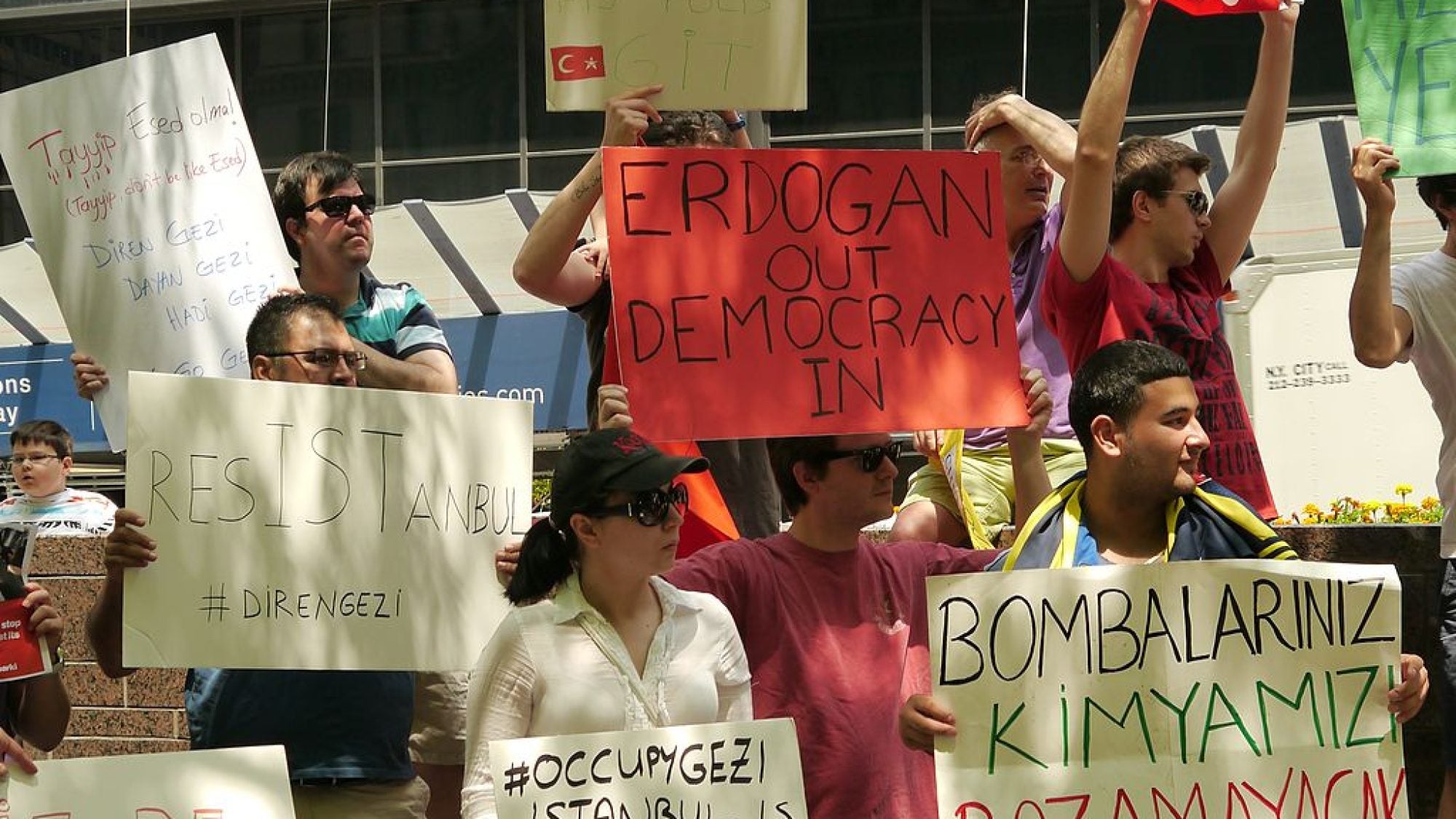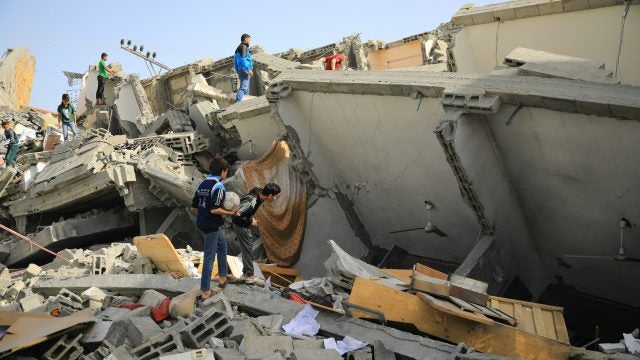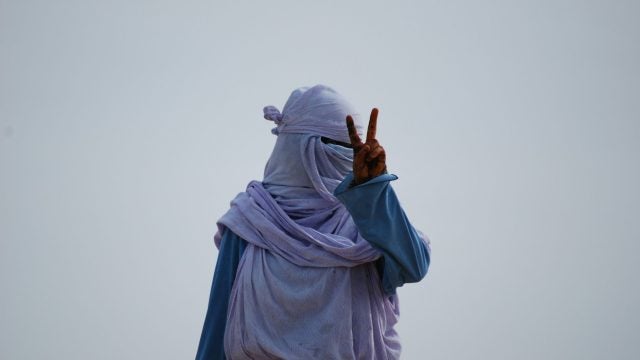
Title: Five Things to Know About the Protests in Turkey
Early Tuesday morning, Turkish riot police once again stormed Gezi Park in Istanbul’s Taksim Square, the epicenter of the almost two-week nationwide protests against Prime Minister Recep Tayyip Erdogan. Although the protests may soon succumb to police pressure, the Occupy Gezi movement marks a turning point in Turkish politics that will likely have repercussions long after Erdogan is out of power. Based extensively on Turkish-language sources, here are five things you should know about Turkey’s protests.
1. The protests are not just about a park
For the original environmentalist protestors, the planned destruction of Gezi Park to make way for a replica of an Ottoman military complex-cum-shopping mall was the latest in a series of actions by Erdogan and his ruling Justice and Development Party (AKP) to transform Istanbul’s landscape.
Yet, Gezi Park also served an outlet for broader disapproval of Erdogan’s governing policies and style. According to Ceyda Sungur, the “woman in red” who has become a symbol of “Occupy Gezi,” the violent police intervention against the Gezi Park protestors on May 28 represents “a small detail in the ruling party’s repression that aims to silence all opposition voices in Turkey.” During the latter half of Erdogan’s now over ten-year rule, a large number of journalists, students and political activists have been arrested under broadly interpreted anti-terror laws.
The protests are also in response to Erdogan’s attempt to legislate the lifestyle choices of the Turkish public in line with his own moral beliefs, including recent restrictions on the sale of alcohol, as well as the government’s perceived interference with everything from the makeup of Turkish Airlines stewardesses to TV series.
2. The protestors come from diverse segments of the Turkish public that are united in opposition to Erdogan, but not necessarily on other issues
The protestors represent various ideologies, including: Anti-Capitalist Muslims, Kemalists (supporters of Turkey’s secular founder, Mustafa Kemal Ataturk), Kurds, LBGT and women’s rights groups, football clubs, leftists/Communists and labor unions. It is thus incorrect to characterize the protestors solely as “secular Turks.” Noting that calls for a military coup have also largely been absent among the protestors, columnist Cengiz Candar describes Occupy Gezi as Turkey’s first “post-modern resistance” movement.
Erdogan has dismissed the protestors as “ideological,” but preliminary research suggests that the majority of the protestors are unaffiliated with any particular political party. Indeed, dissatisfaction with the main opposition Republican People’s Party (CHP) is one factor in the protests. At the same time, the leaders of the nationalist and Kurdish opposition parties have largely remained on the sidelines. The uniting factor of these often opposing groups is embodied in their shared rallying cry rather than in any specific policy platform: “Resign Tayyip [Erdogan].”
3. The police are using disproportionate force, while the protestors are largely peaceful
Erdogan has labeled the protestors as “looters.” He also claimed that “terrorist groups” have infiltrated the protests; others have described the protests as “riots.” Yet, for the most part, the protestors have acted peacefully and are the victims rather than the perpetrators of violence. It is estimated that over 4,000 protestors have been injured as a result of the tear gas, water cannons, rubber bullets and baton-beatings.
While there are some exceptions to this police brutality—in one city, police handed out flowers to protestors, and in another they used tear gas to disperse counter-protestors—three young men have died in the protests so far.
4. While Erdogan remains Turkey’s most popular politician, the protests represent an unprecedented challenge to his rule, and his mismanagement of them has damaged his credibility both at home and abroad
Although the main Occupy Gezi organizer, Taksim Solidarity, has repeatedly issued calls for restraint to protestors, Erdogan continues to make statements that stoke rather than alleviate tension. On June 3, he declared, “We’re restraining with difficulty the 50 percent of the people in this country who are at home, telling them to be patient and calm.”
The “50 percent” Erdogan referred to is those who voted AKP into power thrice since 2002. It appears that the current protests reflect significant erosion of Erdogan’s previous coalition support, particularly amongst liberals and secular businesspeople.
Erdogan remains Turkey’s most popular politician, and the AKP would likely win if he calls early elections. Yet, the protests have also showcased once again the distinction between the styles and outlook of President Abdullah Gul (who has made conciliatory statements) and Erdogan. Coupled with apparent dissension of others in Erdogan’s circle, this split could have implications for his initiative to change Turkey’s parliamentary system to a presidential one, allowing (if elected) his rule for another decade.
Erdogan’s response to the protests has also damaged his credibility abroad. His blaming of Twitter and the foreign “interest rate lobby” have made him the target of criticism by those who previously praised him for Turkey’s democratic reforms, its strong economy, and its potential to serve as a “model” for Arab countries.
5. This is not a “Turkish Spring,” but the Arab Uprisings—the Syrian civil war in particular—are a factor in the protests
Images of citizens of a Muslim-majority country protesting their government in a square with a name sounding a bit like “Tahrir” led some international observers to label Occupy Gezi as a “Turkish Spring.” Social media has played a crucial role in Turkey’s protests as it did in some of the Arab Uprisings, and some Turks have drawn parallels between Erdogan and former Egyptian dictator Hosni Mubarak. However, despite faults in its democratic system, Turkey has held mostly free and fair multiparty elections since 1946, far from the case in Egypt and elsewhere.
Rather than a part of the Arab Uprisings, the Occupy Gezi movement should be understood in part as a reaction to Erdogan’s involvement in them, particularly in Syria. Although Erdogan has earned praised abroad for his outspoken opposition to Bashar al-Assad and hosting of Syrian refugees, polls indicate that the vast majority of Turks (including AKP supporters) are against any Turkish military intervention in Syria.
Tension reached a breaking point on May 11, when car bombs killed fifty-one people in the border town of Reyhanli. Although the government immediately accused the Assad regime of being responsible for the attack, many Turks blamed the AKP’s Syria policy. The hanging of signs bearing the names of those who died at Reyhanli on the trees in Gezi Park, along with the intensity of Occupy Gezi protests in Antakya, indicate the role dissatisfaction with the AKP’s involvement in the Syrian civil war is playing in the movement.
Conclusion
Rhetorically at least, both the Occupy Gezi protestors and Erdogan share a commitment to making Turkey an “advanced democracy.” Erdogan and the AKP should indeed be credited for democratization initiatives such as addressing the Kurdish issue and revising Turkey’s current military-drafted constitution. However, it appears that at the moment Erdogan conflates democratizing Turkey with bringing under his control those institutions (the military, media, police, judiciary) that used to be dominated by the secular Kemalists who oppose him. The Occupy Gezi movement demonstrates that Erdogan has become an obstacle more than a facilitator in Turkey’s long-term democratization process—even of his own party’s democratization initiatives. At the same time, the ultimate implications of Occupy Gezi for Turkey’s democracy are yet to be determined.
Image Credit: Christopher Amos from New York, USA, CC BY 2.0 <https://creativecommons.org/licenses/by/2.0>, via Wikimedia Commons
This is an archived article. While every effort is made to conserve hyperlinks and information, GJIA’s archived content sources online content between 2011 – 2019 which may no longer be accessible or correct.
More News

This piece examines the UK government’s proscription of Palestine Action under the Terrorism Act, situating it within a broader trend of shrinking space for public dissent. It argues that the…

This article analyses the distortions of the International Humanitarian Law (IHL) notion of proportionality in the context of the Israel-Gaza war. It discusses Israel’s attempts to reinterpret proportionality to justify…

The escalating women’s rights crisis in Afghanistan demonstrates a gap in international legal protections of the rights of women and girls. The international community should fill this gap by making…